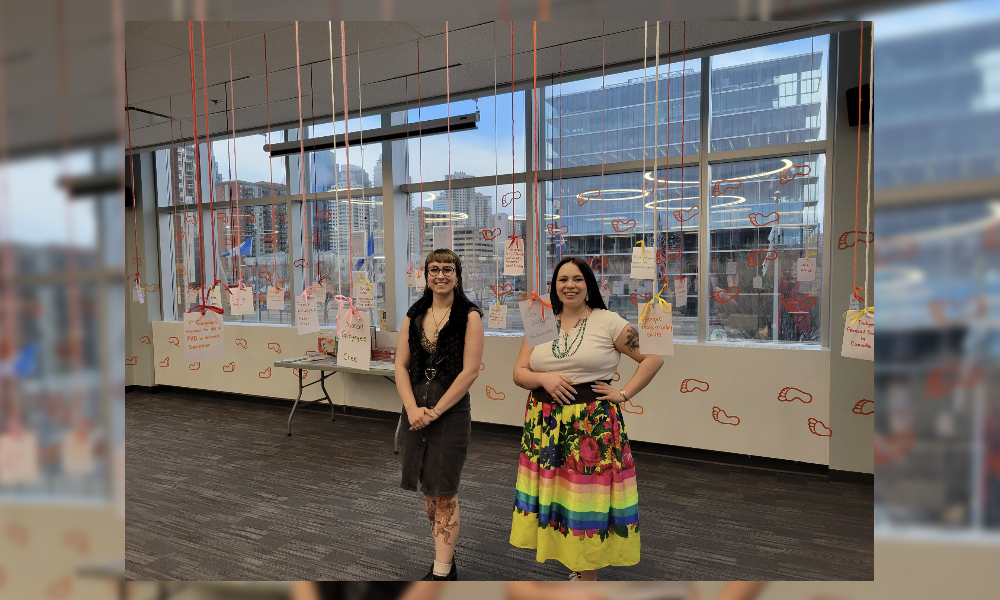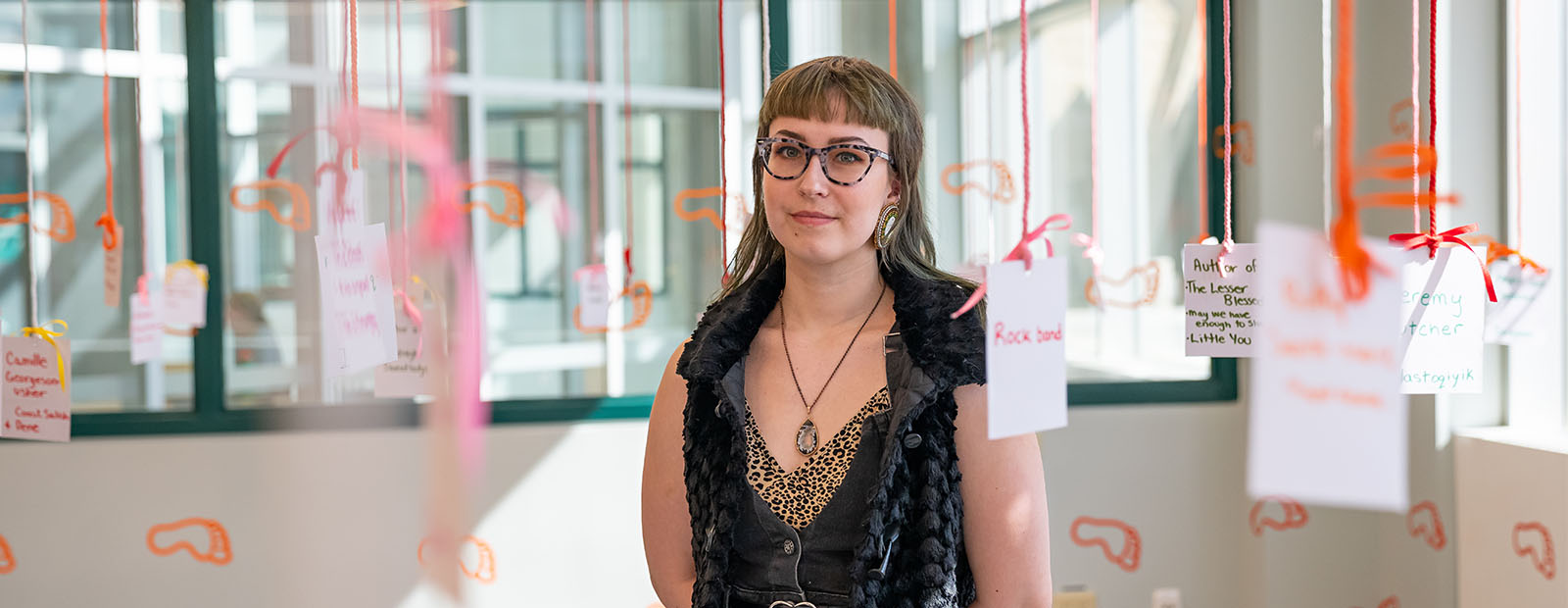After completing two summer field placements in museums, student Nicole Da Costa started asking questions.
“What do you think about museums,” she asked Chelsea Currie, a close friend, and an Indigenous social worker. “I wanted to know if we could change the narrative within museum spaces – and if we could, what would that look like? If we really did give back all stolen artifacts to their cultural communities, what kind of exhibits would we want to see in museum spaces?”
It was the beginning of a series of conversations Da Costa, a fourth-year student in the Honours Anthropology program, had about the history of museums and who feels safe and welcome there. “I began reaching out to more people to discuss repatriation, reconciliation, decolonized research and the benefits of collaborating with community.”
Those conversations ultimately led to “A Walk-Though Indigenous Memory,” a week-long exhibit – and an act of reconciliation – showcased in the MacEwan Library. But Da Costa quickly points out that her honours thesis project is not something she built alone.
“For research to be relevant in our communities, we must actively engage those communities in deciding which issues are important, how research should be conducted and what community outcomes should be sought,” she says. “Saying ‘nothing about us without us’ needs to be applied within academic research more consciously.”
 Nicole Da Costa (left) and Cheyenne Greyeyes (right) at the exhibit in the MacEwan Library in April.
Nicole Da Costa (left) and Cheyenne Greyeyes (right) at the exhibit in the MacEwan Library in April.
The MacEwan Indigenous Students Club executive members had an important role in the project. With the help of other MISC members, club president Cheyenne Greyeyes and vice-president Kelsey Sorenson designed the exhibit, which acknowledged issues of displacement and erasure of histories by showcasing Indigenous peoples' names, cultural backgrounds, and accomplishments across Canada.
“As a researcher, I know that I alone do not possess the knowledge needed to address these issues within Indigenous and settler communities impactfully,” says Da Costa. “But I have the skills required to support groups like the MacEwan Indigenous Students Club in co-collaborative research that can build on these topics in a meaningful way.”
Images from the “A Walk-Though Indigenous Memory” exhibit.
Da Costa says that it felt like it “took a whole village to create this project.” Crystal Pennell with kihêw waciston and Da Costa’s research supervisors, Dr. Cynthia Zutter (Anthropology) and Dr. Robin Nelson (Arts and Cultural Management) oversaw the project. The MacEwan Library team hosted the exhibit, the Makerspace helped with technical design elements and library student-staff cut out the 147 footprints that were part of the project’s visual design in shades of orange.
Da Costa hopes that visitors to the exhibit are left with a broader understanding of Indigenous history and presence that will stay with them as they walk through Edmonton, or anywhere their feet take them across Turtle Island.
“Cheyenne spoke about feeling the presence of her ancestors when she walks on the land, and knowing that what she sees now is much different than what they saw then,” explains Da Costa. “One of our goals within this exhibit was to replicate that feeling of Indigenous presence on this land since time immemorial, leading up to our present day, and into our future.”
The project wasn’t finished when the exhibit‘s time in the library ended. Da Costa documented the exhibit on Dr. Nelson’s website, Museoception, creating a virtual space for “A Walk-Though Indigenous Memory” to encourage people to continue learning about Indigenous peoples’ histories.
“The Indigenous peoples who have called this land home since time immemorial are everywhere – you just need to look,” she says. “They are writing books, singing songs, playing sports, teaching school children, working within our bodies of government and hospitals, honouring their ancestors that endured hardship, and inspiring the next generation of youth.”
